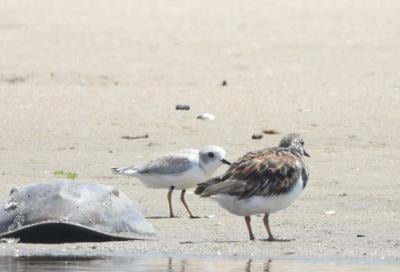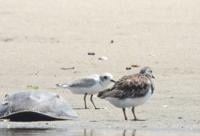DELAWARE - The Delaware Department of Natural Resources and Environmental Control has released an update on the First State’s piping plover population.
Piping plovers, federally listed as threatened and considered endangered in Delaware, saw mixed results in 2025, according to DNREC. Officials report an increase in adult pair numbers, but acknowledged the beach-nesting birds faced continued nesting success challenges.
DNREC says a total of 30 nesting pairs were recorded in Delaware in 2025, up from 24 pairs in 2024. Pair counts have steadily increased since 2016 following the impacts of Hurricane Sandy, according to DNREC.
“We also saw breeding adults that had high success in 2024 returning to Delaware this spring, as well as some new birds, and some second and third year birds making their first known breeding attempt near their birth sites,” said Katherine “Kat” Christie, DNREC coastal waterbird biologist and leader of the Delaware Shorebird Project.
Christie says despite the increase in numbers, the species saw challenges to their breeding success due to predators and weather conditions. Owls, foxes, coyotes, and ghost crabs are all among the animals that prey on piping plovers and pose significant threats to the nesting birds, according to DNREC. June’s excessive heat is also believed to have caused chick and nest loss, officials say.
In 2025, chicks per breeding pair was recorded at 1.0, a decrease from 2024’s 1.7 fledglings per pair. DNREC says the recovery goal for the piping plover is 1.5 fledglings per pair, a goal that Delaware’s piping plovers have only met once since 2020.
“Partners are working together to better understand the drivers of population change and behavior, such as a study investigating piping plover chick and fledgling movement,” Christie said. “Trained biologists fit each plover with a unique combination of plastic leg bands allowing them to be identified using a spotting scope or binoculars.”
DNREC says piping plover nesting areas at The Point at Cape Henlopen State Park and Fowler Beach remain closed through Oct. 1 to protect southbound migrant shorebirds including the piping plover. More information on the migratory, beach-nesting birds can be found here.



